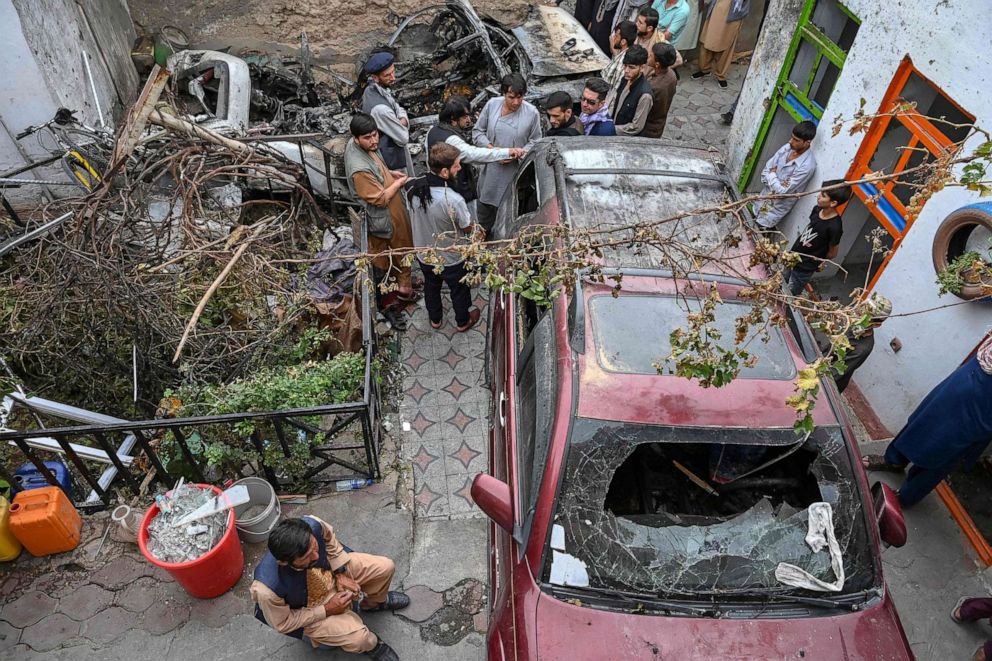No punishments for deadly US drone strike in Kabul
Ten civilians were killed in what was later called "a tragic mistake."
No U.S. military personnel involved in the Aug. 29 drone strike that killed 10 civilians will be disciplined, the Pentagon's top spokesman said at a news conference Monday.
The deadly drone strike had targeted what was believed to be a car bomber, but instead struck three adults, including the Afghan employee of an American aid organization, and seven children.
"I do not anticipate there being issues of personal accountability to be had with respect to the August 29 airstrike," John Kirby, the Pentagon spokesman, told reporters.

"What we saw here was a breakdown in process and execution in procedural events, not the result of negligence, not the result of misconduct, not the result of poor leadership," said Kirby.
In November, an independent military investigation led by the Air Force's inspector general found no one criminally negligent for the mistaken strike that was built on a series of mistakes by drone targets that led officials to believe the vehicle they were following was going to be used in the car bomb attack.
That investigation left it to Gen. Frank McKenzie, the commander of U.S. Central Command, and Gen. Richard Clarke, the commander of U.S. Special Operations Command, to determine if disciplinary action was warranted.
Kirby said Monday that while both commanders had forwarded recommendations to Defense Secretary Lloyd Austin dealing with procedural changes for future drone targeting, they did not make a specific recommendation for accountability or disciplinary action.
The spokesman said Austin had invited both commanders to look at the airstrike "in the broadest sense" and include a recommendation if they believed "there were issues of accountability that needed to be needed to be had, and both of them came back without any such recommendation."
"So it's not that this wasn't, that the issue of accountability was was not looked at seriously and considered seriously," Kirby said. "It absolutely was."
The strike occurred at a time of heightened tensions as U.S. intelligence pointed to an imminent car bomb attack by the ISIS-K terrorist group on the airport in Kabul as the U.S. carried out the last evacuation flights of American and Afghan civilians.
U.S. military leaders initially defended the strike as having prevented a terrorist attack, but weeks later, Gen. Frank McKenzie acknowledged that it had been "a tragic mistake."
The Pentagon has said previously that it will provide condolence payments to surviving families or arrange for their transportation to the United States. Kirby said on Monday that he did not have any updates on the progress of those payments or possible removal of family members from Afghanistan.




